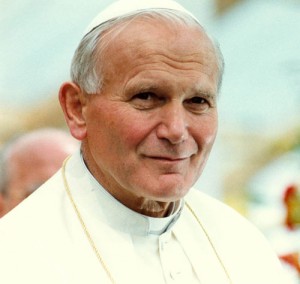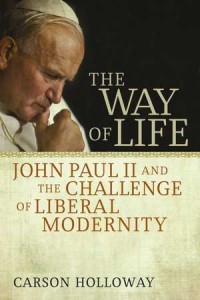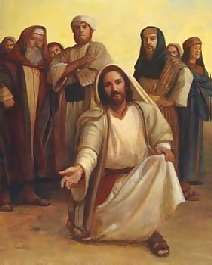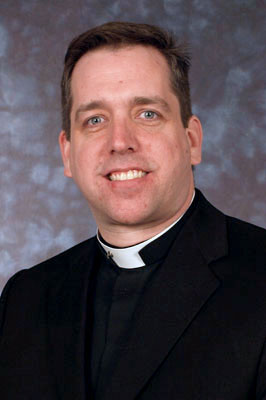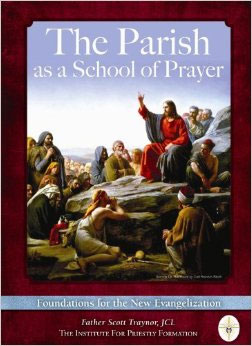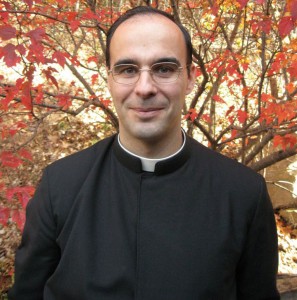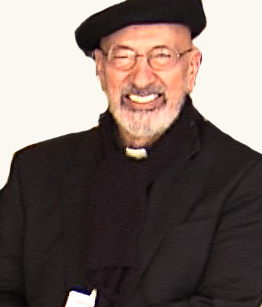“Do not be angry, be reconciled“
[powerpress]
an excerpt from today’s reflection by Don Schwager: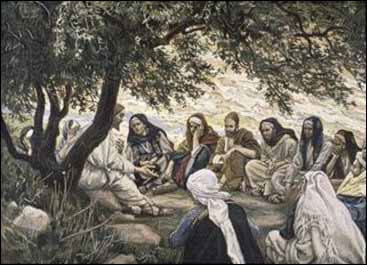
Do you allow sin or anger to master your life? The first person to hate his brother was Cain. God warned Cain: ‘Why are you angry? ..Sin in couching at the door; it’s desire is for you, but you must master it (Genesis 4:6-7). Sin doesn’t just happen; it first grows as a seed in one’s heart. Unless it is mastered, by God’s grace, it grows like a weed and chokes the life out of us. Jesus addressed the issue of keeping the commandments with his disciples. The scribes and Pharisees equated righteousness with satisfying the demands of the law. Jesus showed them how short they had come. Jesus points to the heart as the seat of desire, choice, and intention. Unless forbidden and evil desires are uprooted and cut-out, the heart will be poisoned and the body become a slave to sin and passion. Jesus illustrates his point with the example of the commandment to not kill. Murder first starts in the heart as the seed of forbidden anger that grows within until it springs into words and actions against one’s brother or neighbor. This is a selfish anger that broods and is long-lived, that nurses a grudge and keeps wrath warm, and that refuses to die. Anger in the heart as well as anger in speech or action are equally forbidden. The Lord Jesus commands by grace – take away the anger in your heart and there will be no murder.
What is the antidote for overcoming anger and rage? Mercy, forbearance, and kindness spring from a heart full of love and forgiveness. God has forgiven us and he calls us to extend mercy and forgiveness towards those who cause us grief or harm. In the cross of Jesus we see the supreme example of love and the power for overcoming evil. Only God’s love and grace can set our hearts and minds free from the tyranny of wounded pride and spiteful revenge. Do you harbor any anger towards another person? And are you quick to be reconciled when a rupture has been caused in your relationships? Ask God to set you free and to fill your heart and mind with his love and truth.
Do you seek to live peaceably and charitably with all?
“Lord Jesus, my heart is cold. Make it warm, compassionate, and forgiving towards all, even those who do me harm. May I only think and say what is pleasing to you and be of kind service to all I meet.â€
for the full reflection visit : Daily Reading and Meditation
Tags: catholic, catholic podcast, catholic prayer
This entry was posted on Friday, March 14th, 2014 at 12:03 am
You can follow any responses to this entry through the RSS 2.0 feed.
“How much more will your Father who is in heaven give good things to those who ask him!”
[powerpress]
an excerpt from today’s reflection by Don Schwager: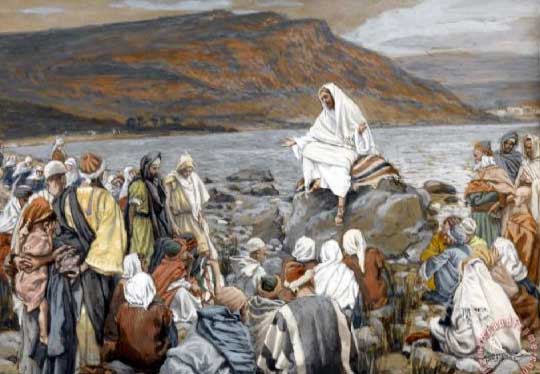
Those who know and trust in God’s love, pray with great boldness. Listen to what John Chrysostom, a 5th century church father, has to say about the power of prayer: “Prayer is an all-efficient panoply [i.e. ‘a full suit of armor’ or ‘splendid array’], a treasure undiminished, a mine never exhausted, a sky unobstructed by clouds, a haven unruffled by storm. It is the root, the fountain, and the mother of a thousand blessings. It exceeds a monarch’s power. ..I speak not of the prayer which is cold and feeble and devoid of zeal. I speak of that which proceeds from a mind outstretched, the child of a contrite spirit, the offspring of a soul converted – this is the prayer which mounts to heaven. ..The power of prayer has subdued the strength of fire, bridled the rage of lions, silenced anarchy, extinguished wars, appeased the elements, expelled demons, burst the chains of death, enlarged the gates of heaven, relieved diseases, averted frauds, rescued cities from destruction, stayed the sun in its course, and arrested the progress of the thunderbolt. In sum prayer has power to destroy whatever is at enmity with the good.â€
Prayer flows from the love of God; and the personal love we show to our neighbor is fueled by the love that God has poured into our hearts through the Holy Spirit (Romans 5:5). Jesus concludes his discourse on prayer with the reminder that we must treat our neighbor in the same way we wish to be treated by God and by others. We must not just avoid doing harm to our neighbor, we must actively seek his or her welfare. In doing so, we fulfill the law and the prophets, namely what God requires of us – loving God with all that we have and are and loving our neighbor as ourselves. The Holy Spirit is every ready to transform our lives in Jesus’ way of love. Do you thirst for holiness and for the fire of God’s love?
“Let me love you, my Lord and my God, and see myself as I really am – a pilgrim in this world, a Christian called to respect and love all whose lives I touch, those in authority over me or those under my authority, my friends and my enemies. Help me to conquer anger with gentleness, greed by generosity, apathy by fervor. Help me to forget myself and reach out towards others.” (Prayer attributed to Clement XI of Rome)
for the full reflection visit : Daily Reading and Meditation
Tags: catholic, catholic podcast, catholic prayer
This entry was posted on Thursday, March 13th, 2014 at 12:18 am
You can follow any responses to this entry through the RSS 2.0 feed.
“The sign of Jonah for an evil generation”
[powerpress]
an excerpt from today’s reflection by Don Schwager:
The Lord Jesus came to set us free from slavery to sin and hurtful desires. Through the gift of the Holy Spirit he pours his love into our 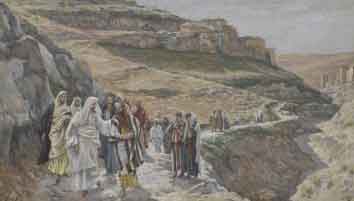 hearts that we may understand his will for our lives and walk in his way of holiness. God searches our hearts, not to condemn us, but to show us where we need his saving grace and help. He calls us to seek him with true repentance, humility, and the honesty to see our sins for what they really are – a rejection of his love and will for our lives. God will transform us if we listen to his word and allow his Holy Spirit to work in our lives. Ask the Lord to renew your mind and to increase your thirst for his wisdom. James says that the wisdom from above is first pure, then peaceable, gentle, open to reason, full of mercy and good fruits, without uncertainty or insincerity (James 3:17). A double-minded person cannot receive this kind of wisdom. The single of mind desire one thing alone – God’s pleasure. God wants us to delight in him and to know the freedom of his truth and love. Do you thirst for the holiness without which no one will see the Lord (Hebrews 12:14)?
hearts that we may understand his will for our lives and walk in his way of holiness. God searches our hearts, not to condemn us, but to show us where we need his saving grace and help. He calls us to seek him with true repentance, humility, and the honesty to see our sins for what they really are – a rejection of his love and will for our lives. God will transform us if we listen to his word and allow his Holy Spirit to work in our lives. Ask the Lord to renew your mind and to increase your thirst for his wisdom. James says that the wisdom from above is first pure, then peaceable, gentle, open to reason, full of mercy and good fruits, without uncertainty or insincerity (James 3:17). A double-minded person cannot receive this kind of wisdom. The single of mind desire one thing alone – God’s pleasure. God wants us to delight in him and to know the freedom of his truth and love. Do you thirst for the holiness without which no one will see the Lord (Hebrews 12:14)?
“Lord Jesus, change my heart and fill me with your wisdom that I my love your ways. Give me grace and courage to resist temptation and stubborn willfulness that I may truly desire to do what is pleasing to you.”
for the full reflection visit : Daily Reading and Meditation
Tags: catholic, catholic podcast, catholic prayer
This entry was posted on Wednesday, March 12th, 2014 at 12:01 am
You can follow any responses to this entry through the RSS 2.0 feed.
“Lord, when did we see you hungry?“
[powerpress]
an excerpt from today’s reflection by Don Schwager:
This parable is similar to the parable about Lazarus and the rich man (Luke 16:19-31). The rich man let Lazarus die on his doorstep and was doomed to crave for drops of cold water he had not thought of giving to the poor man. When Martin of Tours (316-397 AD), a young Roman soldier and seeker of the Christian faith, met an unclothed man begging for alms in the freezing cold, he stopped and cut his coat in two and gave half to the stranger. That night he dreamt he saw the heavenly court with Jesus robed in a torn cloak. One of the angels present asked, “Master, why do you wear that battered cloak?” Jesus replied, “My servant Martin gave it to me.” Martin’s disciple and biographer Sulpicius Severus states that as a consequence of this vision “Martin flew to be baptized.” God is gracious and merciful; his love compels us to treat others with mercy and kindness. When we do something for one of Christ’s little ones, we do it for Christ. Do you treat your neighbor with mercy and love as Christ has treated you?
The scriptures present us with the choice between two kingdoms – the kingdom of light and the kingdom of darkness. The choice is ours. Which kingdom do you serve? God’s kingdom lasts forever because it is built on the foundation of God’s love and justice. To accept Jesus as Lord and King is to enter a kingdom that will last forever where righteousness, love, truth, and peace dwell. Is your life submitted to the Lordship of Jesus?
“Lord Jesus Christ, you are my Lord and King and there is no other. May your love rule in my heart that I may think and act with charity towards all.”
for the full reflection visit : Daily Reading and Meditation
Tags: catholic, catholic podcast, catholic prayer
This entry was posted on Monday, March 10th, 2014 at 3:36 pm
You can follow any responses to this entry through the RSS 2.0 feed.
“Fasting for the kingdom of God”
[powerpress]
an excerpt from today’s reflection by Don Schwager:
Are you hungry for God? Hungering for God and fasting for his kingdom go hand in hand. When asked why he and his disciples did not fast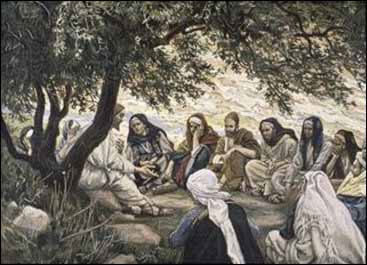 Jesus used the vivid picture of a wedding celebration. In Jesus’ time the newly wed celebrated their honeymoon at home for a whole week with all the guests! This was a time of great feasting and celebrating. Jesus points to himself as the bridegroom and his disciples as the bridegroom’s friends. He alludes to the fact that God takes delight in his people as a groom delights in his bride (Isaiah 62:5). To be in God’s presence is pure delight and happiness. But Jesus also reminds his followers that there is a time for fasting and for humbling oneself in preparation for the coming of God’s kingdom and for the return of the Messianic King. The Lord’s disciples must also bear the cross of affliction and purification. For the disciple there is both a time for rejoicing in the Lord’s presence and celebrating his goodness and a time for seeking the Lord with humility, fasting, and mourning for sin. If we hunger for the Lord, he will not disappoint us. His grace draws us to his throne of mercy and favor. Do you seek the Lord with confident trust and allow his Holy Spirit to transform your life with his power and grace?
Jesus used the vivid picture of a wedding celebration. In Jesus’ time the newly wed celebrated their honeymoon at home for a whole week with all the guests! This was a time of great feasting and celebrating. Jesus points to himself as the bridegroom and his disciples as the bridegroom’s friends. He alludes to the fact that God takes delight in his people as a groom delights in his bride (Isaiah 62:5). To be in God’s presence is pure delight and happiness. But Jesus also reminds his followers that there is a time for fasting and for humbling oneself in preparation for the coming of God’s kingdom and for the return of the Messianic King. The Lord’s disciples must also bear the cross of affliction and purification. For the disciple there is both a time for rejoicing in the Lord’s presence and celebrating his goodness and a time for seeking the Lord with humility, fasting, and mourning for sin. If we hunger for the Lord, he will not disappoint us. His grace draws us to his throne of mercy and favor. Do you seek the Lord with confident trust and allow his Holy Spirit to transform your life with his power and grace?
What kind of fasting is pleasing to God? Fasting can be done for a variety of reasons – to gain freedom from some bad habit, addiction, or vice, to share in the suffering of those who go without, or to grow in our hunger for God and for the things of heaven. Basil the Great wrote: “Take heed that you do not make fasting to consists only in abstinence from meats. True fasting is to refrain from vice. Shred to pieces all your unjust contracts. Pardon your neighbors. Forgive them their trespasses.†Do you hunger to know God more, to grow in his holiness, and to live the abundant life of grace he offers you?
“Come Lord, work upon us, set us on fire and clasp us close, be fragrant to us, draw us to your loveliness, let us love, let us run to you.” (Prayer of St. Augustine)
for the full reflection visit : Daily Reading and Meditation
Tags: catholic, catholic podcast, catholic prayer
This entry was posted on Friday, March 7th, 2014 at 12:13 am
You can follow any responses to this entry through the RSS 2.0 feed.
From Dr. Anthony Lilles’ blog “Beginning to Pray”
During Lent, we dedicate ourselves to prayer, fasting and almsgiving. Â These practices are simple ways of expressing our gratitude to Jesus for what He has done for us. Â This in fact is the very nature of penance. Â Penance is love which responds to mercy – and this love is not content with words, thoughts and feelings. Â This love needs to express itself in a prayer the cries from the heart, in sacrifice that really costs, and in little hidden acts of kindness which comfort those who most need it.
Why do we allow God to implicate us in the plights of others, especially during Lent? Â God’s love suffers the personal plight each of us. Â He does this because He does not want us to suffer alone. Â So He seeks us out in our suffering – the suffering that we have brought on ourselves and the suffering that others have brought on us. Â He is concerned about our dignity and He is ready to do whatever it takes that we might be rectified and stand with Him who is Love Himself. Â The extent to which He enters into our misery for this purpose is revealed on the Cross. Â If we are to be His disciples, we must pick up our cross and follow Him. Â This is how the Lord extends His saving mystery through space and time – He loves us so much He implicates us in this great work of His Love.
No matter how many times we fail, no matter how great our weaknesses, no matter how inadequate we are to the demands of love — He is there with us, loving us, providing exactly what we need in the moment, and this because He really loves us that much. Â How can we not respond by offering Him food and drink when we recognize Him in the disguise of those who hunger and thirst? Â How can we not respond by forgoing a little comfort and convenience when He has already suffered so much discomfort and inconvenience for us? Â How can we not respond by praying for those who need the love of God when He has never forgotten us in His love for the Father?
When prayer, sacrifice and generosity come together in thanksgiving to God for His goodness to us, deep places of the heart are purified and we rediscover the joy humanity was meant to know from the beginning. Â Lent is all about this joy – a joy God’s love allows us to know, the joy of being sons and daughters of God, the joy of heart so beautiful it would be wrong not to share it with those who need a little joy as well.
Dr. Anthony Lilles is the author of “Hidden Mountain, Secret Garden”
Available at Amazon.com as an ebook (click here), a paperback edition (click here).  You may also order a paperback edition at createspace.com.
Tags: catholic, catholic podcast, catholic prayer
This entry was posted on Wednesday, March 5th, 2014 at 1:56 pm
You can follow any responses to this entry through the RSS 2.0 feed.
“We must find a way to discuss the human future intellectually. Â The universal moral law written on the human heart is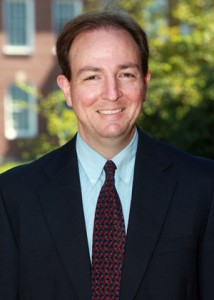 precisely that kind of grammar which is needed if the world is to engage in this discussion of it’s future” Â Bl. Pope John Paull II
precisely that kind of grammar which is needed if the world is to engage in this discussion of it’s future” Â Bl. Pope John Paull II
[powerpress]
WOL1 – Episode 1 – What is “liberal modernity”?  Maybe not so modern?  The revolution in political philosophy…like the thought of  Thomas Hobbes, John Locke…what is “good” and what are the problems.  Why is it important to discern between “self-interest” and the dignity of each human person?  Why is Bl. John Paul’s thought relevant to Western Liberalism?  What is the “Culture of Death” and the climate of moral confusion?  The moral law is the path to life.
The Way of Life, Carson Holloway examines the fundamental philosophers of modernity-from Hobbes to Toqueville-to suggest that John Paul II’s critique of modernity is intended not to reject, but to improve. Thus, claims Holloway, it is appropriate for liberal modernity to attend to the Pope’s thought, receiving it not as the attack of an enemy but as the criticism of a candid friend.
 Â
This series is based on Dr. Holloway’s book “The Way of Life”
Tags: catholic, catholic podcast, catholic prayer
This entry was posted on Wednesday, March 5th, 2014 at 8:22 am
You can follow any responses to this entry through the RSS 2.0 feed.
“When you pray, fast, and give alms”
[powerpress]
an excerpt from today’s reflection by Don Schwager: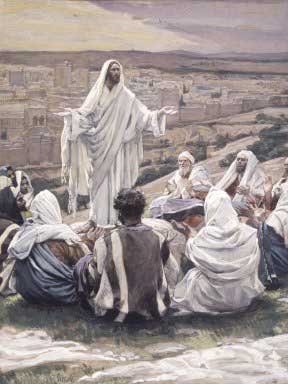
Why did Jesus single out prayer, fasting, and almsgiving for his disciples? The Jews considered these three as the cardinal works of the religious life. These were seen as the key signs of a pious person, the three great pillars on which the good life was based. Jesus pointed to the heart of the matter. Why do you pray, fast, and give alms? To draw attention to yourself so that others may notice and think highly of you? Or to give glory to God? The Lord warns his disciples of self-seeking glory – the preoccupation with looking good and seeking praise from others. True piety is something more than feeling good or looking holy. True piety is loving devotion to God. It is an attitude of awe, reverence, worship and obedience. It is a gift and working of the Holy Spirit that enables us to devote our lives to God with a holy desire to please him in all things (Isaiah 11:1-2).
What is the sure reward which Jesus points out to his disciples? It is communion with God our Father. In him alone we find the fulness of life, happiness, and truth. May Augustine’s prayer, recorded in his Confessions, be our prayer this Lent: When I am completely united to you, there will be no more sorrows or trials; entirely full of you, my life will be complete. The Lord wants to renew us each day and give us new hearts of love and compassion. Do you want to grow in your love for God and for your neighbor? Seek him expectantly in prayer, with fasting, and in generous giving to those in need.
The forty days of Lent is the annual retreat of the people of God in imitation of Jesus’ forty days in the wilderness. Forty is a significant number in the scriptures. Moses went to the mountain to seek the face of God for forty days in prayer and fasting. The people of Israel were in the wilderness for forty years in preparation for their entry into the promised land. Elijah fasted for forty days as he journeyed in the wilderness to the mountain of God. We are called to journey with the Lord in a special season of prayer, fasting, almsgiving, and penitence as we prepare to celebrate the feast of Easter, the Christian Passover. The Lord gives us spiritual food and supernatural strength to seek his face and to prepare ourselves for spiritual combat and testing. We, too, must follow in the way of the cross in order to share in the victory of Christ’s death and resurrection. As we begin this holy season of testing and preparation, let’s ask the Lord for a fresh outpouring of his Holy Spirit that we may grow in faith, hope, and love and embrace his will more fully in our lives.
“Lord Jesus, give me a lively faith, a firm hope, a fervent charity, and a great love of you. Take from me all lukewarmness in the meditation of your word, and dullness in prayer. Give me fervor and delight in thinking of you and your grace, and fill me with compassion for others, especially those in need, that I may respond with generosity.”
for the full reflection visit : Daily Reading and Meditation
Tags: catholic, catholic podcast, catholic prayer
This entry was posted on Wednesday, March 5th, 2014 at 12:01 am
You can follow any responses to this entry through the RSS 2.0 feed.
Episode 7 -The Way of Mystery: The Eucharist and Moral Living 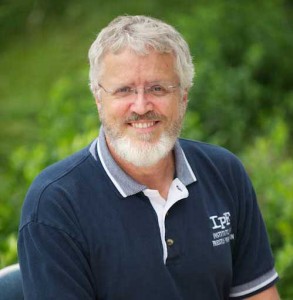
The Liturgy of the Word part 1 Christ entering us through language. The difference in our attitude of being an “audience” and being in an attitude of prayer. How the Word sets us free
[powerpress]
For more episodes in “The Way of Mystery” Series click here
Deacon James Keating, PhD, the director of Theological Formation for the Institute for Priestly Formation, located at Creighton University, in Omaha, is making available to â€Discerning Hearts†and all who listen, his series of programs entitled “The Way of Mysteryâ€.
 The Vatican II documents remind us that the spiritual journey is not made in a vacuum, that God has chosen to save us, not individually, but as The People of God. The Eucharist must help Christians to make their choices by discerning out of Christ’s paschal mystery. For this process to take place, however, Christians must first understand how the Eucharist puts them in touch with Christ’s passion, death, and resurrection, and what concrete implications being in touch with this mystery has for their daily lives.
The Vatican II documents remind us that the spiritual journey is not made in a vacuum, that God has chosen to save us, not individually, but as The People of God. The Eucharist must help Christians to make their choices by discerning out of Christ’s paschal mystery. For this process to take place, however, Christians must first understand how the Eucharist puts them in touch with Christ’s passion, death, and resurrection, and what concrete implications being in touch with this mystery has for their daily lives.
For more information on the “Institute of Priestly Formation†and for other material available by Deacon Keating, just click here
Don’t forget to pickup a copy of “Communion with Christ†, it is one of the best audio sets on prayer…ever!
Check out Deacon Keating’s “Discerning Heart†page
Tags: catholic, catholic podcast, catholic prayer
This entry was posted on Tuesday, March 4th, 2014 at 4:20 pm
You can follow any responses to this entry through the RSS 2.0 feed.
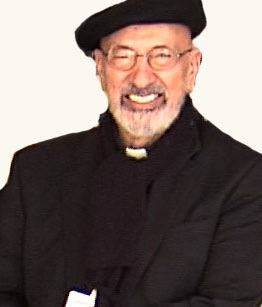 Show 59 ” Building a Kingdom of Love” – Why Do You Worry?
Show 59 ” Building a Kingdom of Love” – Why Do You Worry?
[powerpress]
*Note: This is a special reflection given by Msgr. Esseff on the morning of his departure for his mission to Peru.
Gospel MT 6:24-34
Jesus said to his disciples:
“No one can serve two masters.
He will either hate one and love the other,
or be devoted to one and despise the other.
You cannot serve God and mammon.“Therefore I tell you, do not worry about your life,
what you will eat or drink,
or about your body, what you will wear.
Is not life more than food and the body more than clothing?
Look at the birds in the sky;
they do not sow or reap, they gather nothing into barns,
yet your heavenly Father feeds them.
Are not you more important than they?
Can any of you by worrying add a single moment to your life-span?
Why are you anxious about clothes?
Learn from the way the wild flowers grow.
They do not work or spin.
But I tell you that not even Solomon in all his splendor
was clothed like one of them.
If God so clothes the grass of the field,
which grows today and is thrown into the oven tomorrow,
will he not much more provide for you, O you of little faith?
So do not worry and say, ‘What are we to eat?’
or ‘What are we to drink?’or ‘What are we to wear?’
All these things the pagans seek.
Your heavenly Father knows that you need them all.
But seek first the kingdom of God and his righteousness,
and all these things will be given you besides.
Do not worry about tomorrow; tomorrow will take care of itself.
Sufficient for a day is its own evil.â€
Lectionary for Mass for Use in the Dioceses of the United States, second typical edition, Copyright © 2001, 1998, 1997, 1986, 1970 Confraternity of Christian Doctrine;
Msgr. John A. Esseff is a Roman Catholic priest in the Diocese of Scranton. He was ordained on May 30th 1953, by the late Bishop William J. Hafey, D.D. at St. Peter’s Cathedral in Scranton, PA. Msgr. Esseff served a retreat director and confessor to Blessed Mother Teresa. He continues to offer direction and retreats for the sisters of the missionaries of charity around the world. Msgr. Esseff encountered St. Padre Pio, who would become a spiritual father to him. He has lived in areas around the world, serving in the Pontifical missions, a Catholic organization established by Bl. Pope John Paul II to bring the Good News to the world especially to the poor. Msgr. Esseff assisted the founders of the Institute for Priestly Formation and continues to serve as a spiritual director for the Institute. He continues to serve as a retreat leader and director to bishops, priests and sisters and seminarians and other religious leaders around the world.
To obtain a copy of Msgr. Esseff’s book by visiting here
Be sure to visit Msgr. Esseff’s website “Building a Kingdom of Love”
Tags: catholic, catholic podcast, catholic prayer
This entry was posted on Monday, March 3rd, 2014 at 11:08 pm
You can follow any responses to this entry through the RSS 2.0 feed.
SP#6 The School of Prayer: Foundations for the New Evangelization
Fr. Scott Traynor talks about how God wants to have an intimate relationship with us. What is the dynamic of this relationship? He longs for us to freely give ourselves to Him. Fr. Scott talks about the gift of our imagination and what is true spiritual reality as opposed to fantasy. How do I tell the difference? What is the nature of the effect? Is it lasting or does it evaporate after the experience? Is Jesus in the center of the reality we are encountering? He describes the use of Lectio Divina, the praying with Sacred Scripture, that helps us to enter into the deeper relationship we are called to by God. Fr. Scott explains the difference between the Ignatian and Carmelite understandings of “contemplation”. Is there an ordinary Catholic “mysticism”? Do we miss it?
In Father Scott Traynor’s book, Blessed John Paul II’s memorable call to make of the parish a school of prayer takes on flesh and becomes concretely attainable. Those you read these faith-filled pages will find renewed desire to create such parishes and a clear road-map toward this goal.
–Father Timothy Gallagher, OMV
Father Scott Traynor received his STB from the Pontifical Gregorian University and his JCL from Catholic University of America. He has been an instructor and spiritual director for many of the programs at the Institute for Priestly Formation.
Father Traynor is a retreat master and spiritual director who has travelled the country as a speaker at various conferences, diocesan gatherings and national conferences.. He is especially sought after to present on the topics of prayer, discernment and priestly identity and mission.
He serves the Rector of the St. John Vianney Theological Seminary in Denver Colorado.
Tags: catholic, catholic podcast, catholic prayer
This entry was posted on Thursday, February 27th, 2014 at 2:35 pm
You can follow any responses to this entry through the RSS 2.0 feed.
BTP#35 – Identifying and Battling the “Irrational Spirits” – The Mystery of Faith in the Wisdom of the Saints.
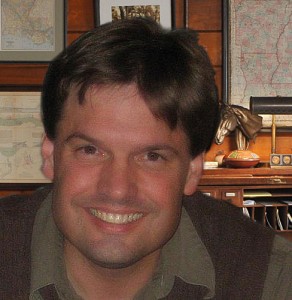
[powerpress]
In this episode Dr. Lilles discusses the nature of prayer. The use of “methods” or “techniques” is cautioned by Dr. Lilles. The relationship with the person of Jesus Christ is paramount. He discusses the struggles in prayer and the real “enemies” which assault us in prayer. He points to the experience and teachings of St. Anthony of the Desert, who battled the irrational spirits opposed to our relationship with God. Dr. Lilles then relates that teaching to the places of “death” which confront our lives today, the importance of naming the irrational “spirit” and using the “Word of Truth” to fight the battle.
Dr.Anthony Lilles is a Catholic husband and father of three teaching Spiritual Theology at St. John Vianney Theological Seminary. He teaches spiritual theology and spiritual direction to transitional deacons, and the spiritual classics to the men who enter the Spirituality Year, a year of prayer in preparation for seminary formation. He is the author of the “Beginning to Pray” Catholic blog spot.
For other episodes in the series visit the Discerning Hearts page for Dr. Anthony Lilles
Tags: catholic, catholic podcast, catholic prayer
This entry was posted on Monday, February 24th, 2014 at 12:48 pm
You can follow any responses to this entry through the RSS 2.0 feed.
FG#13 – The Way of Trust and Love Ep 2 – Fountains of Grace: reflections on contemporary spiritual classics with Donna Garrett
Join host Donna Garrett, with Fr. James Perez, LC, as they discuss the spiritual classic “The Way of Trust and Love: A Retreat Guided By St. Therese of Lisieux” by Fr. Jacques Philippe.
[powerpress]
Discussed in this episode, among other topics, from “The Way of Trust and Love”
The fact that we can’t save ourselves is something we acknowledge in words, but in fact we find it very hard to accept. We’d all like to be saved by our own efforts, to be strong and robust, to boast about our successes, to shine in other people’s eyes, even on the spiritual level. Worldly people want to be highly regarded because they have luxurious cars, expensive watches, designer clothes, professional prestige, and go around with beautiful people. As good Christians, we may want to stand out for our virtues, charisms, experience, and sound judgment. Then we consider that we are on the right path. But in fact we’re in danger of ending up with exactly the same mindset as the worldly people described above. Very often, without realizing it, we have a worldly outlook on the spiritual life: self-fulfillment, self-affirmation, expansion of ego, etc. And spiritual pride, we must be aware, is sometimes more destructive than social, worldly pride.
We cannot be saved by what we do; we can only be saved by grace, when God’s freely given love comes, takes hold of us, and transforms us, sometimes gently and progressively, but sometimes in a spectacular way. In general, the transformation is fairly slow and progressive, without our always being able to notice the action of grace.
Philippe, Jacques (2012-06-07). The Way of Trust and Love – A Retreat Guided by St. Therese of Lisieux (Kindle Locations 445-454). Scepter Publishers. Kindle Edition.
For other episodes in the this series click here “Fountains of Grace w/Donna Garrett“

You can find “The Way of Trust and Love” here
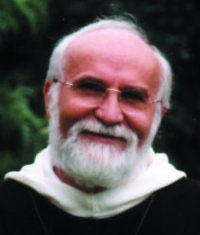
Fr. Jacques Philippe
Tags: catholic, catholic podcast, catholic prayer
This entry was posted on Monday, February 24th, 2014 at 3:51 am
You can follow any responses to this entry through the RSS 2.0 feed.
Gospel MT 5:38-48
Jesus said to his disciples:
“You have heard that it was said,
An eye for an eye and a tooth for a tooth.
But I say to you, offer no resistance to one who is evil.
When someone strikes you on your right cheek,
turn the other one as well.
If anyone wants to go to law with you over your tunic,
hand over your cloak as well.
Should anyone press you into service for one mile,
go for two miles.
Give to the one who asks of you,
and do not turn your back on one who wants to borrow.
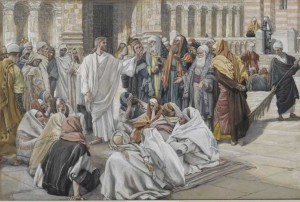 “You have heard that it was said,
“You have heard that it was said,
You shall love your neighbor and hate your enemy.
But I say to you, love your enemies
and pray for those who persecute you,
that you may be children of your heavenly Father,
for he makes his sun rise on the bad and the good,
and causes rain to fall on the just and the unjust.
For if you love those who love you, what recompense will you have?
Do not the tax collectors do the same?
And if you greet your brothers only,
what is unusual about that?
Do not the pagans do the same?
So be perfect, just as your heavenly Father is perfect.â€
Lectionary for Mass for Use in the Dioceses of the United States, second typical edition, Copyright © 2001, 1998, 1997, 1986, 1970 Confraternity of Christian Doctrine;
Tags: catholic, catholic podcast, catholic prayer
This entry was posted on Monday, February 24th, 2014 at 1:19 am
You can follow any responses to this entry through the RSS 2.0 feed.
It was with great joy we had the opportunity to talk with Fr. Thomas Dubay.  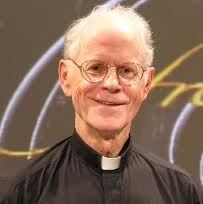   His work on “Fire Within” and all the programs he gave us on EWTN were instrumental in my spiritual growth. In those early days, he was like having a distant spiritual director who guided me, as well as the rest of us, toward a deeper relationship with Christ.
  His work on “Fire Within” and all the programs he gave us on EWTN were instrumental in my spiritual growth. In those early days, he was like having a distant spiritual director who guided me, as well as the rest of us, toward a deeper relationship with Christ.
[powerpress]
He told me once, “Kris, the best theology books are the lives of the saints; you study them and you won’t be led astray.”  Fr. Thomas Dubay, in a very real way, helped inspire the work of this blog and it’s mission.
Here’s a host of books by Fr. Thomas Dubay
Tags: catholic, catholic podcast, catholic prayer
This entry was posted on Thursday, February 20th, 2014 at 8:58 am
You can follow any responses to this entry through the RSS 2.0 feed.


